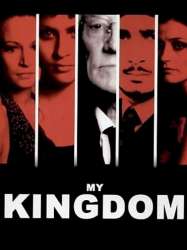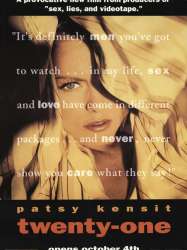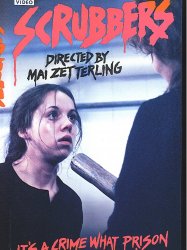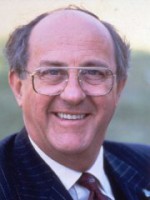Don Boyd is a Director, Scriptwriter and Producer British born on 11 august 1948 at Nairn (United-kingdom)

Donald William Robertson Boyd Hon D.Litt (Exeter) (born 11 August 1948 in Nairn, Scotland) is a Scottish film director, producer, screenwriter and novelist. He is a Governor of the London Film School and a Visiting Professor in Film at Exeter University.
In 1977 Boyd established his own production company, Boyd's Co., which over the next decade produced a series of British films including Alan Clarke's Scum, Derek Jarman's The Tempest, Lindsay Anderson's Look Back in Anger and Julien Temple's The Great Rock 'n' Roll Swindle. During this time his company featured the work of such actors, writers, directors, producers, cinematographers and musicians as John Hurt, Ray Winstone, Dame Helen Mirren, Tilda Swinton, Stephen Fry, Michael Tolkin, Jeremy Thomas, Sarah Radclyffe, Bridget Fonda, Kathy Burke, The Edge, and The Sex Pistols.
In 1978 Boyd collaborated on and helped finance Ron Peck's and Paul Hallam's 1978 Nighthawks, described by Time Out as "Britain's first committed gay feature film", which attracted controversy in the UK at the time prompting Channel 4 to delay its broadcast until 1984.
Many of Boyd's films at this time, including Scum, Sweet William, Derek Jarman's The Tempest and later Honky Tonk Freeway, attracted investors because their financing incorporated tax avoidance schemes devised by his business partner and close friend the tax accountant (also arts patron and benefactor) Roy Tucker. These schemes were funded by the Rossminster banking group. Rossminster attracted adverse media attention, especially from the noted Sunday Times financial journalist Lorana Sullivan, and was discussed in parliamentAt least £100 million in lost taxes is involved. According to Granada's World in Action programme, it could be as much as £1,000 million - equal to more than a penny on income tax for the rest of us.
In 1981 The House of Lords effectively ruled many of Tucker's schemes invalid leaving most of Rossminster's customers, including Boyd's investors, unable to garner any tax relief from his schemes after 1975. The total potential loss to the exchequer before Rossminster's activities were curtailed was eventually estimated at £362 million while the tax eventually returned (with interest) estimated at around £500 million.
Tax avoidance schemes had been commonly used for years by celebrities in the entertainment world to protect their income but Tucker and Boyd were the first to provide them to finance films. The film critic and historian Alexander Walker commented that financing films in such ways became a common practice at the time but suggested that ultimately it was self-defeating because the government of the day might well have concluded that if the British film industry was so good at inventing financial self-help of this sort then it had no need of government assistance. Indeed the 1985 Films Act, pushed through parliament despite all-party protest by Norman Lamont, fellow alumnus of Boyd's at Loretto School, dismantled all subsidies to the British film industry.
Boyd moved to Hollywood in the early 1980s for a two-year period, where he worked at both Paramount Pictures and Universal Studios and produced John Schlesinger's 1981 $24 million commercial failure Honky Tonk Freeway. The film was based on an original idea of Boyd's and financed in part by his Rossminster associations. Its eventual $11 million loss to its principal backer Thorn-EMI significantly impacted Thorn-EMI's subsequent fortunes and aspirations.
Boyd returned to the UK in 1982 and attempted to resume his directorial career with Gossip, which was to be a satire on celebrity life in the early Thatcher years based on an original treatment by Frances Lynn. The production ran into financial difficulties and was shut down after just two weeks shooting.
Dan North, a lecturer in Film in the Department of English at Exeter University, has chronicled Gossip in Sights Unseen: Unfinished British Films edited by North. Stephen Fry was given his first job in film by Boyd as a script rewriter for Gossip and its story is recounted by him in The Fry Chronicles: An Autobiography. Fry is supportive of Boyd in his bookThe film collapsed ... The upshot was that poor Don, one of the kindest and best of men, was effectively blacklisted and prevented from participating in film production for three years. Even that didn't end it, for once Don managed to start up again the unions insisted he continue to pay over what negligible producing fees he did earn. By 1992 he was financially wiped out ...
In 1987 Boyd produced the multi-directorial opera film Aria which featured segments by Robert Altman, Bruce Beresford, Bill Bryden, Jean-Luc Godard, Derek Jarman, Franc Roddam, Nicolas Roeg, Ken Russell, Charles Sturridge and Julien Temple. It was in competition for the Palme d'Or at the Cannes Film Festival in 1987.
After producing Derek Jarman's War Requiem, for the BBC in 1988, which was Laurence Olivier's last film, Boyd returned to his directorial career. He directed low budget independent feature films such as Twenty-One, written by Zoë Heller and featuring Patsy Kensit as female lead; Kleptomania, co-scripted by Christa Lang, the widow of Samuel Fuller; Lucia, in which his daughter Amanda had the lead role; and My Kingdom which featured Richard Harris in his last leading role. He further directed over twenty television documentaries including a BAFTA and Prix Italia nominated film featuring the comedienne Ruby Wax in a documentary about Imelda Marcos; Andrew and Jeremy Get Married, a documentary film portrait of a commitment ceremony which had its world premiere at the Toronto International Film Festival in 2004 and was broadcast on the BBC as part of their Storyville documentary series; Full Frontal in Flip Flops, a documentary film portrait of naturism for ITV; and Donald and Luba: A Family Movie, an 'intimate family documentary' in which he and his 22 year old filmmaker daughter Kate chronicled his parents' failed marriage (inter alia suggesting Boyd's father was a British spy during the Mau-Mau rebellion) and which was filmed on location in Harbin, Hong Kong, Jinja, Kiev, London, Nairobi and Shanghai for the BBC.
The National Film Theatre presented a season of his films in 1982 culminating in a Guardian Lecture with the film critic Derek Malcolm.
In 2001 Boyd claimed he had been sexually abused by a teacher while a student at Loretto School in the 1960s. The teacher was charged on the basis of other allegations that emerged but the case was later dropped.
The University of Exeter awarded him an honorary Doctor of Letters (DLitt) in 2009. Previously he had been an Honorary Visiting Professor in the College of Humanities between 2005 and 2008. Boyd had earlier donated his personal and business papers documenting his 30 year film career at that point to the university's Centre for Interdisciplinary Research (CIR). He has presented a series of In Conversation events at the CIR with prominent cultural figures such as Mike Leigh and the Director-General of the BBC, Mark Thompson.
Boyd's internet venture, hibrow.tv, 'the world’s first independent Internet platform for freshly created content curated and produced by established visual and performing arts', went 'live' as a full beta test on 20 December 2011. 23 January 2012 is scheduled as the date for its full public launch.
Alexander Walker referred to him as 'the Boyd Wonder' in his 1985 book National Heroes: British Cinema in the 70's and 80's while Boyd describes himself in the same text as 'a director-orientated audience-conscious film-marketing editor'. Nevertheless, despite his evident prominence, his films have yet to have the commercial success of some his contemporaries while international critical acclaim has thus far proved equally elusive. His last feature film My Kingdom, co-scripted with Nick Davies and drawing on both their researches into the London and Liverpool criminal underworld (which in Boyd's case included the Kray bothers), brought him into conflict with its principal lead Richard Harris, who wanted to rewrite the script. The film subsequently received mixed reviews while generally acknowledging a fine performance from Harris who was nominated for a British Independent Film Award. Similarly Twenty-One earned Patsy Kensit an Independent Spirit Award for Best Female Lead nomination but itself received mixed press reviews in the UK (although it was well received at its Sundance premiere earning Boyd a nomination).
Source : Wikidata
Don Boyd

- Infos
- Photos
- Best films
- Family
- Characters
- Awards
Birth name Donald William Robertson
Nationality United-kingdom
Birth 11 august 1948 (76 years) at Nairn (United-kingdom)
Nationality United-kingdom
Birth 11 august 1948 (76 years) at Nairn (United-kingdom)
Donald William Robertson Boyd Hon D.Litt (Exeter) (born 11 August 1948 in Nairn, Scotland) is a Scottish film director, producer, screenwriter and novelist. He is a Governor of the London Film School and a Visiting Professor in Film at Exeter University.
Biography
Boyd was brought up by his Scottish father and Russian mother in Hong Kong, Uganda and Kenya and educated at the noted Scottish public school Loretto School in Musselburgh, East Lothian. After leaving school in 1965 he trained as an accountant in Edinburgh before enrolling in the London Film School in 1968. He graduated in 1970 and began his career working for the BBC television series Tomorrow's World. After two years directing commercials for the likes of Coca Cola, Shell and Chrysler, he directed his first feature film, Intimate Reflections, which premiered at the London Film Festival in 1975. This was followed by East of Elephant Rock starring John Hurt, which also premiered at the London Film Festival but gathered mainly hostile reviews.In 1977 Boyd established his own production company, Boyd's Co., which over the next decade produced a series of British films including Alan Clarke's Scum, Derek Jarman's The Tempest, Lindsay Anderson's Look Back in Anger and Julien Temple's The Great Rock 'n' Roll Swindle. During this time his company featured the work of such actors, writers, directors, producers, cinematographers and musicians as John Hurt, Ray Winstone, Dame Helen Mirren, Tilda Swinton, Stephen Fry, Michael Tolkin, Jeremy Thomas, Sarah Radclyffe, Bridget Fonda, Kathy Burke, The Edge, and The Sex Pistols.
In 1978 Boyd collaborated on and helped finance Ron Peck's and Paul Hallam's 1978 Nighthawks, described by Time Out as "Britain's first committed gay feature film", which attracted controversy in the UK at the time prompting Channel 4 to delay its broadcast until 1984.
Many of Boyd's films at this time, including Scum, Sweet William, Derek Jarman's The Tempest and later Honky Tonk Freeway, attracted investors because their financing incorporated tax avoidance schemes devised by his business partner and close friend the tax accountant (also arts patron and benefactor) Roy Tucker. These schemes were funded by the Rossminster banking group. Rossminster attracted adverse media attention, especially from the noted Sunday Times financial journalist Lorana Sullivan, and was discussed in parliamentAt least £100 million in lost taxes is involved. According to Granada's World in Action programme, it could be as much as £1,000 million - equal to more than a penny on income tax for the rest of us.
In 1981 The House of Lords effectively ruled many of Tucker's schemes invalid leaving most of Rossminster's customers, including Boyd's investors, unable to garner any tax relief from his schemes after 1975. The total potential loss to the exchequer before Rossminster's activities were curtailed was eventually estimated at £362 million while the tax eventually returned (with interest) estimated at around £500 million.
Tax avoidance schemes had been commonly used for years by celebrities in the entertainment world to protect their income but Tucker and Boyd were the first to provide them to finance films. The film critic and historian Alexander Walker commented that financing films in such ways became a common practice at the time but suggested that ultimately it was self-defeating because the government of the day might well have concluded that if the British film industry was so good at inventing financial self-help of this sort then it had no need of government assistance. Indeed the 1985 Films Act, pushed through parliament despite all-party protest by Norman Lamont, fellow alumnus of Boyd's at Loretto School, dismantled all subsidies to the British film industry.
Boyd moved to Hollywood in the early 1980s for a two-year period, where he worked at both Paramount Pictures and Universal Studios and produced John Schlesinger's 1981 $24 million commercial failure Honky Tonk Freeway. The film was based on an original idea of Boyd's and financed in part by his Rossminster associations. Its eventual $11 million loss to its principal backer Thorn-EMI significantly impacted Thorn-EMI's subsequent fortunes and aspirations.
Boyd returned to the UK in 1982 and attempted to resume his directorial career with Gossip, which was to be a satire on celebrity life in the early Thatcher years based on an original treatment by Frances Lynn. The production ran into financial difficulties and was shut down after just two weeks shooting.
Dan North, a lecturer in Film in the Department of English at Exeter University, has chronicled Gossip in Sights Unseen: Unfinished British Films edited by North. Stephen Fry was given his first job in film by Boyd as a script rewriter for Gossip and its story is recounted by him in The Fry Chronicles: An Autobiography. Fry is supportive of Boyd in his bookThe film collapsed ... The upshot was that poor Don, one of the kindest and best of men, was effectively blacklisted and prevented from participating in film production for three years. Even that didn't end it, for once Don managed to start up again the unions insisted he continue to pay over what negligible producing fees he did earn. By 1992 he was financially wiped out ...
In 1987 Boyd produced the multi-directorial opera film Aria which featured segments by Robert Altman, Bruce Beresford, Bill Bryden, Jean-Luc Godard, Derek Jarman, Franc Roddam, Nicolas Roeg, Ken Russell, Charles Sturridge and Julien Temple. It was in competition for the Palme d'Or at the Cannes Film Festival in 1987.
After producing Derek Jarman's War Requiem, for the BBC in 1988, which was Laurence Olivier's last film, Boyd returned to his directorial career. He directed low budget independent feature films such as Twenty-One, written by Zoë Heller and featuring Patsy Kensit as female lead; Kleptomania, co-scripted by Christa Lang, the widow of Samuel Fuller; Lucia, in which his daughter Amanda had the lead role; and My Kingdom which featured Richard Harris in his last leading role. He further directed over twenty television documentaries including a BAFTA and Prix Italia nominated film featuring the comedienne Ruby Wax in a documentary about Imelda Marcos; Andrew and Jeremy Get Married, a documentary film portrait of a commitment ceremony which had its world premiere at the Toronto International Film Festival in 2004 and was broadcast on the BBC as part of their Storyville documentary series; Full Frontal in Flip Flops, a documentary film portrait of naturism for ITV; and Donald and Luba: A Family Movie, an 'intimate family documentary' in which he and his 22 year old filmmaker daughter Kate chronicled his parents' failed marriage (inter alia suggesting Boyd's father was a British spy during the Mau-Mau rebellion) and which was filmed on location in Harbin, Hong Kong, Jinja, Kiev, London, Nairobi and Shanghai for the BBC.
The National Film Theatre presented a season of his films in 1982 culminating in a Guardian Lecture with the film critic Derek Malcolm.
In 2001 Boyd claimed he had been sexually abused by a teacher while a student at Loretto School in the 1960s. The teacher was charged on the basis of other allegations that emerged but the case was later dropped.
The University of Exeter awarded him an honorary Doctor of Letters (DLitt) in 2009. Previously he had been an Honorary Visiting Professor in the College of Humanities between 2005 and 2008. Boyd had earlier donated his personal and business papers documenting his 30 year film career at that point to the university's Centre for Interdisciplinary Research (CIR). He has presented a series of In Conversation events at the CIR with prominent cultural figures such as Mike Leigh and the Director-General of the BBC, Mark Thompson.
Boyd's internet venture, hibrow.tv, 'the world’s first independent Internet platform for freshly created content curated and produced by established visual and performing arts', went 'live' as a full beta test on 20 December 2011. 23 January 2012 is scheduled as the date for its full public launch.
Alexander Walker referred to him as 'the Boyd Wonder' in his 1985 book National Heroes: British Cinema in the 70's and 80's while Boyd describes himself in the same text as 'a director-orientated audience-conscious film-marketing editor'. Nevertheless, despite his evident prominence, his films have yet to have the commercial success of some his contemporaries while international critical acclaim has thus far proved equally elusive. His last feature film My Kingdom, co-scripted with Nick Davies and drawing on both their researches into the London and Liverpool criminal underworld (which in Boyd's case included the Kray bothers), brought him into conflict with its principal lead Richard Harris, who wanted to rewrite the script. The film subsequently received mixed reviews while generally acknowledging a fine performance from Harris who was nominated for a British Independent Film Award. Similarly Twenty-One earned Patsy Kensit an Independent Spirit Award for Best Female Lead nomination but itself received mixed press reviews in the UK (although it was well received at its Sundance premiere earning Boyd a nomination).
Usually with
Filmography of Don Boyd (17 films)
Director
 , 1h15
, 1h15Directed by Don Boyd
Origin United-kingdom
Genres Documentary
Themes Films about families, Films about sexuality, LGBT-related films, Documentaire sur l'homosexualité, LGBT-related films, Same-sex marriage in film, LGBT-related film
Actors Hanif Kureishi
Rating67%






My Kingdom (2002)
Directed by Don Boyd
Genres Drama, Action, Crime
Themes Political films, Films based on plays, Films based on works by William Shakespeare, Films about royalty
Actors Richard Harris, Jimi Mistry, Lorraine Pilkington, Reece Noi, Lynn Redgrave, Tom Bell
Rating59%






Twenty-one (1991)
, 1h32Directed by Don Boyd
Genres Drama, Comedy, Romance
Actors Patsy Kensit, Jack Shepherd, Patrick Ryecart, Maynard Eziashi, Rufus Sewell, Sophie Thompson
Rating52%





Katie confides directly to the camera about her troubled existence. She reflects on characters we meet during the film, such as her drug-addicted boyfriend, and dysfunctional family members.

East of Elephant Rock (1977)
Directed by Don Boyd
Genres Drama
Actors John Hurt, Jeremy Kemp, Judi Bowker, Christopher Cazenove, Anton Rodgers
Rating51%





The film is set in South East Asia in 1948 in an unnamed British colony. Embassy secretary Nash is having an affair with a native woman. He takes as mistress the wife of a plantation owner with fateful (and fatal) consequences.

Intimate Reflections (1975)
Directed by Don Boyd
Actors Anton Rodgers, Derek Bond, Peter Vaughan
Rating71%





Robert and Jane are a middle-aged couple grieving over a dead daughter. Michael and Zonny are a young couple with a bright future ahead of them. The film dwells on their parallel lives.
Scriptwriter
 , 1h15
, 1h15Directed by Don Boyd
Origin United-kingdom
Genres Documentary
Themes Films about families, Films about sexuality, LGBT-related films, Documentaire sur l'homosexualité, LGBT-related films, Same-sex marriage in film, LGBT-related film
Actors Hanif Kureishi
Roles Writer
Rating67%






My Kingdom (2002)
Directed by Don Boyd
Genres Drama, Action, Crime
Themes Political films, Films based on plays, Films based on works by William Shakespeare, Films about royalty
Actors Richard Harris, Jimi Mistry, Lorraine Pilkington, Reece Noi, Lynn Redgrave, Tom Bell
Roles Writer
Rating59%






Twenty-one (1991)
, 1h32Directed by Don Boyd
Genres Drama, Comedy, Romance
Actors Patsy Kensit, Jack Shepherd, Patrick Ryecart, Maynard Eziashi, Rufus Sewell, Sophie Thompson
Roles Writer
Rating52%





Katie confides directly to the camera about her troubled existence. She reflects on characters we meet during the film, such as her drug-addicted boyfriend, and dysfunctional family members.

Aria (1987)
, 1h30Directed by Derek Jarman, Charles Sturridge, Robert Altman, Nicolas Roeg, Julien Temple, Jean-Luc Godard, Bruce Beresford, Franc Roddam, Ken Russell, Bill Bryden
Origin United-kingdom
Genres Drama, Comedy, Anthology film, Musical, Romance
Themes Films about music and musicians, Musical films, Films based on operas
Actors Theresa Russell, Beverly D'Angelo, Elizabeth Hurley, Buck Henry, Bridget Fonda, John Hurt
Roles Writer
Rating57%





De grands airs d'opéra vus par dix réalisateurs sur des musiques de Charpentier, Korngold, Leoncavallo, Lully, Puccini, Rameau, Verdi, Wagner. L'image est parfois sans rapport avec le thème de l'opéra, d'autres fois plus proche.

East of Elephant Rock (1977)
Directed by Don Boyd
Genres Drama
Actors John Hurt, Jeremy Kemp, Judi Bowker, Christopher Cazenove, Anton Rodgers
Roles Writer
Rating51%





The film is set in South East Asia in 1948 in an unnamed British colony. Embassy secretary Nash is having an affair with a native woman. He takes as mistress the wife of a plantation owner with fateful (and fatal) consequences.

Intimate Reflections (1975)
Directed by Don Boyd
Actors Anton Rodgers, Derek Bond, Peter Vaughan
Rating71%





Robert and Jane are a middle-aged couple grieving over a dead daughter. Michael and Zonny are a young couple with a bright future ahead of them. The film dwells on their parallel lives.
Producer

The Last of England (1989)
, 1h32Directed by Derek Jarman
Origin United-kingdom
Genres Drama, Fantasy
Themes Films about magic and magicians, Films about sexuality, LGBT-related films, LGBT-related films, LGBT-related film
Actors Tilda Swinton, Nigel Terry, Jonny Phillips, Spencer Leigh, Derek Jarman
Roles Producer
Rating64%





Composé majoritairement d’archives familiales du cinéaste, complétées d’images de ruines et de décadence, The Last of England, d’une actualité stupéfiante, dénonce la médiocrité d’une société, l’Angleterre ultra-libérale de Thatcher, dans une vision futuriste et altruiste où violences politiques, sociales et psychologiques sont intimement mêlées.

War Requiem (1989)
, 1h32Directed by Derek Jarman
Origin United-kingdom
Genres Drama, War, Musical
Actors Laurence Olivier, Tilda Swinton, Nathaniel Parker, Sean Bean, Patricia Hayes, Nigel Terry
Roles Producer
Rating65%





Sans utiliser de dialogue et seulement la pièce musicale de Benjamin Britten, War Requiem se veut une réflexion poétique autour des horreurs de la guerre, en s'axant principalement autour de la Première Guerre mondiale et des poèmes de Wilfred Owen, à travers les souvenirs d'un vieux soldat en fauteuil roulant.

Aria (1987)
, 1h30Directed by Derek Jarman, Charles Sturridge, Robert Altman, Nicolas Roeg, Julien Temple, Jean-Luc Godard, Bruce Beresford, Franc Roddam, Ken Russell, Bill Bryden
Origin United-kingdom
Genres Drama, Comedy, Anthology film, Musical, Romance
Themes Films about music and musicians, Musical films, Films based on operas
Actors Theresa Russell, Beverly D'Angelo, Elizabeth Hurley, Buck Henry, Bridget Fonda, John Hurt
Roles Producer
Rating57%





De grands airs d'opéra vus par dix réalisateurs sur des musiques de Charpentier, Korngold, Leoncavallo, Lully, Puccini, Rameau, Verdi, Wagner. L'image est parfois sans rapport avec le thème de l'opéra, d'autres fois plus proche.

Scrubbers (1983)
, 1h30Directed by Mai Zetterling
Origin United-kingdom
Genres Drama
Themes Prison films, Films about sexuality, Erotic films, Sexploitation films, Women in prison films
Actors Kathy Burke, Eva Mottley, Honey Bane, Dana Gillespie, Pauline Melville, Pam St. Clement
Roles Producer
Rating56%





Two girls escape from an open borstal. Annetta (Chrissie Cotterill) wants to visit her baby daughter who is being raised in a convent. Carol (Amanda York) plans to be recaptured and sent to the closed borstal where her girlfriend Doreen is being held. Carol's plan works, but she is devastated to find that Doreen has a new girlfriend. Doreen and the girlfriend taunt Carol. Annetta is arrested at the convent and sent to the same closed borstal. She assumes Carol "grassed" her up and proceeds to plan her revenge. Inmate Eddie professes her love for Carol and offers protection, so Carol begins a relationship with her. Annetta's constant bullying attempts keep her in solitary confinement. When Eddie is released Carol loses her protection and Annetta plans another attack.
 Connection
Connection



